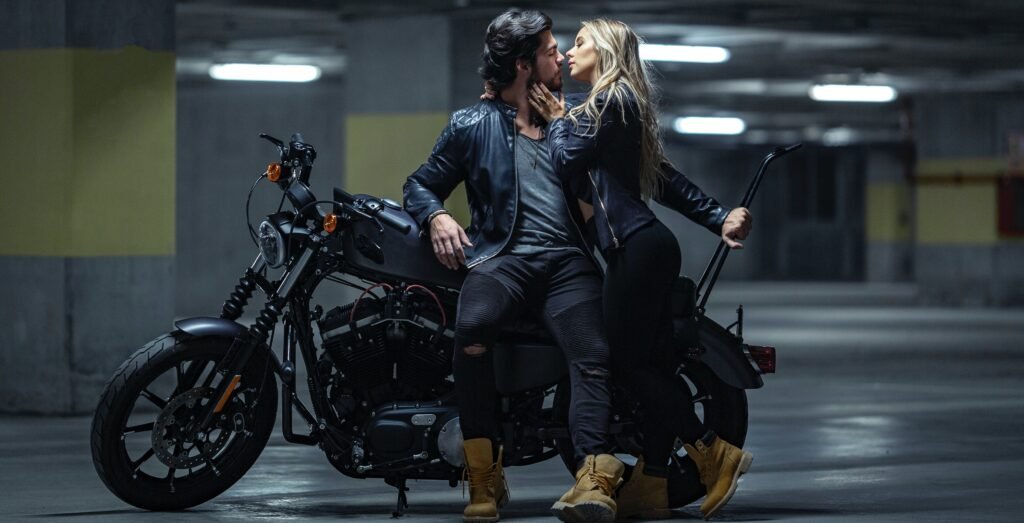When Lox, Drag-On, and Eve dropped the track Ryde or Die Bit** in the late ’90s, little did they know they were cementing a phrase that would echo through generations.
Ride or die, a term deeply rooted in loyalty and unwavering commitment, has since transcended its hip-hop origins to become a cultural mainstay.
In the ever-evolving world of modern slang, certain phrases resonate profoundly, and ride or die stands tall among them.
Let’s embark on a journey to understand its origins, interpretations, and the indelible mark it has left on our cultural psyche.
The Historical Tapestry of Ride or Die
Originating from the biker subculture, ride or die was more than just a phrase—it was a way of life.
Within this community, “ride” symbolised the journey, the open road, and the freedom it represented.
On the other hand, “die” was a stark reminder of the risks involved and the unwavering commitment to the group and its ethos.
It was about loyalty to the core, even if it meant facing life’s most perilous challenges.
One of the earliest examples of this usage can be found in the 1966 movie The Wild Angels, where a biker gang leader says, “We wanna be free! We wanna be free to do what we wanna do. We wanna be free to ride. We wanna be free to ride our machines without being hassled by The Man! … And we wanna get loaded. And we wanna have a good time. And that’s what we are gonna do. We are gonna have a good time… We are gonna have a party.“
Contemporary Interpretations and Nuances
As with many cultural terms, ride or die has evolved. Today, it’s not confined to the biker community but has found its way into everyday conversations.
When someone refers to their ride or die, they’re talking about an individual who’s been with them through thick and thin.
It’s about unwavering support, whether in friendships, romantic liaisons, or even professional ties.
In essence, it’s the modern-day equivalent of saying “for better or for worse.”
Many popular songs have used this term to express their devotion and gratitude to their loved ones.
For instance, in Locked Away by R City feat. Adam Levine, the singer asks his partner, “If I got locked away / And we lost it all today / Tell me honestly / Would you still love me the same?“
Similarly, in Got Your Back by T.I feat.Keri Hilson, the rapper praises his girlfriend for sticking by him during his incarceration: “I know you miss me / I can tell by the way you kiss me / There’s some things I should say to you / You may not believe me but it’s true / Girl you complete me / Don’t ever think you don’t need me / Cause I don’t need nothing else but you / And everything that you do.“

The Heart of a Ride or Die Bond
At its core, a ride or die relationship is anchored in trust, loyalty, and mutual respect.
It’s about standing by someone, irrespective of the circumstances.
This bond is characterised by genuine concern, shared memories, and an understanding that transcends words.
It’s the friend who’s been there during your lowest lows, the partner who celebrates your successes as their own, and the family member who knows you better than you know yourself.
Some songs have captured this sentiment beautifully, such as Stand By You by Rachel Platten: “Even if we can’t find heaven / I’ll walk through hell with you / Love you’re not alone / Cause I’m gonna stand by you.” Or Umbrella by Rihanna feat. Jay Z: “When the sun shines we’ll shine together / Told you I’ll be here forever / Said I’ll always be your friend / Took an oath I’mma stick it out till the end.”
Pop Culture’s Role in Amplifying the Term
The world of entertainment, especially music and cinema, has been instrumental in popularising ride or die.
From poignant song lyrics to memorable movie lines, the term has been employed to depict loyalty and profound relationships.
It’s not uncommon to hear celebrities and artists refer to their inner circle or significant others as their “ride or die,” further embedding the term in popular culture.
One of the most iconic examples of this is the Fast and Furious franchise, which revolves around a group of street racers who become a family of sorts.
The characters often use the term ride or die to describe their bond and their willingness to risk their lives for each other. As Dom Toretto (Vin Diesel) says in Fast Five, “We’re not a team. We’re a family.”
In Conclusion: The Timeless Appeal of Ride or Die
Ride or die is more than a fleeting slang term; it’s a reflection of human relationships and the depth of our bonds.
From its historical roots to its modern-day relevance, the term encapsulates the essence of unwavering loyalty and the lengths we go to for our loved ones.
It’s a testament to the enduring nature of human connections and the timeless appeal of genuine relationships.
You might also like:


